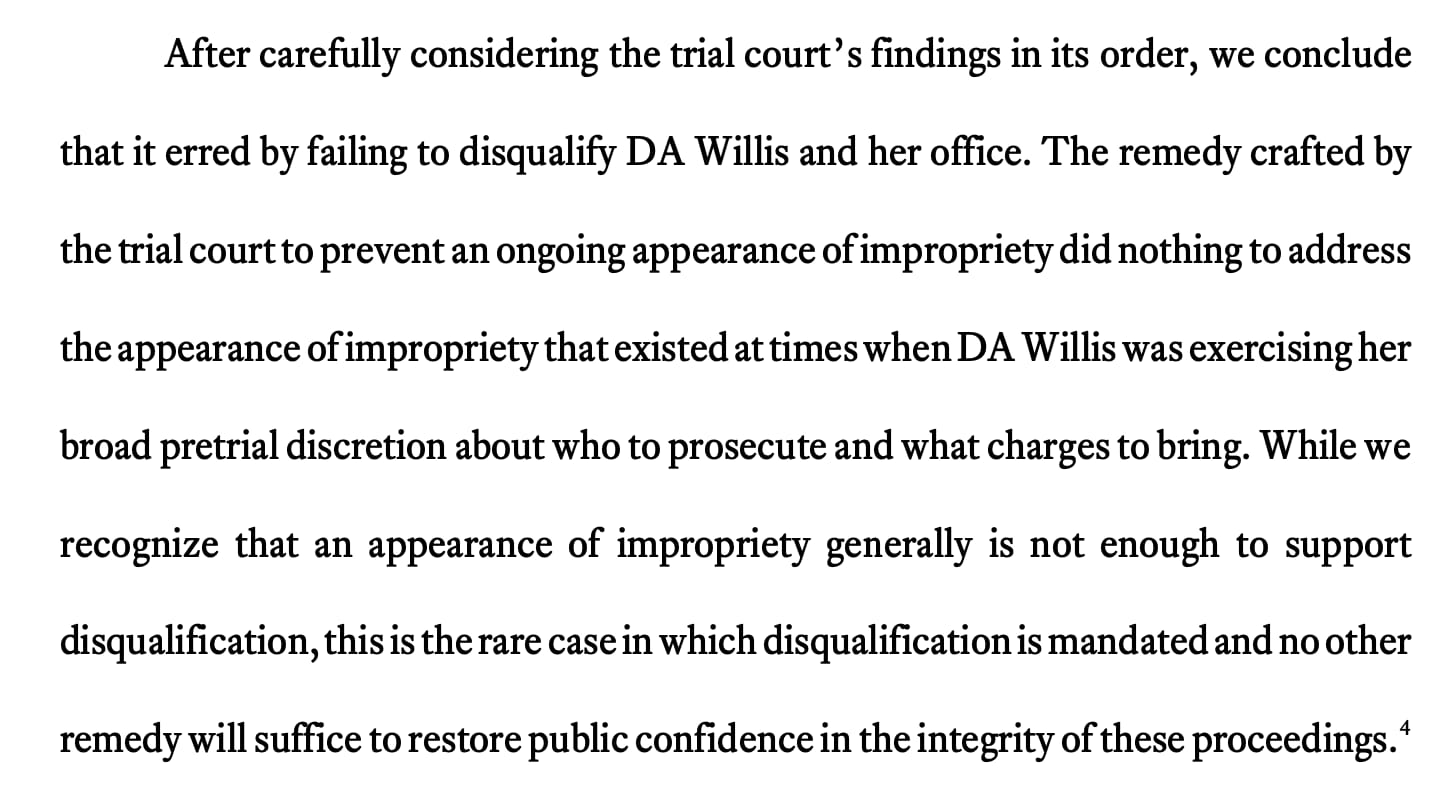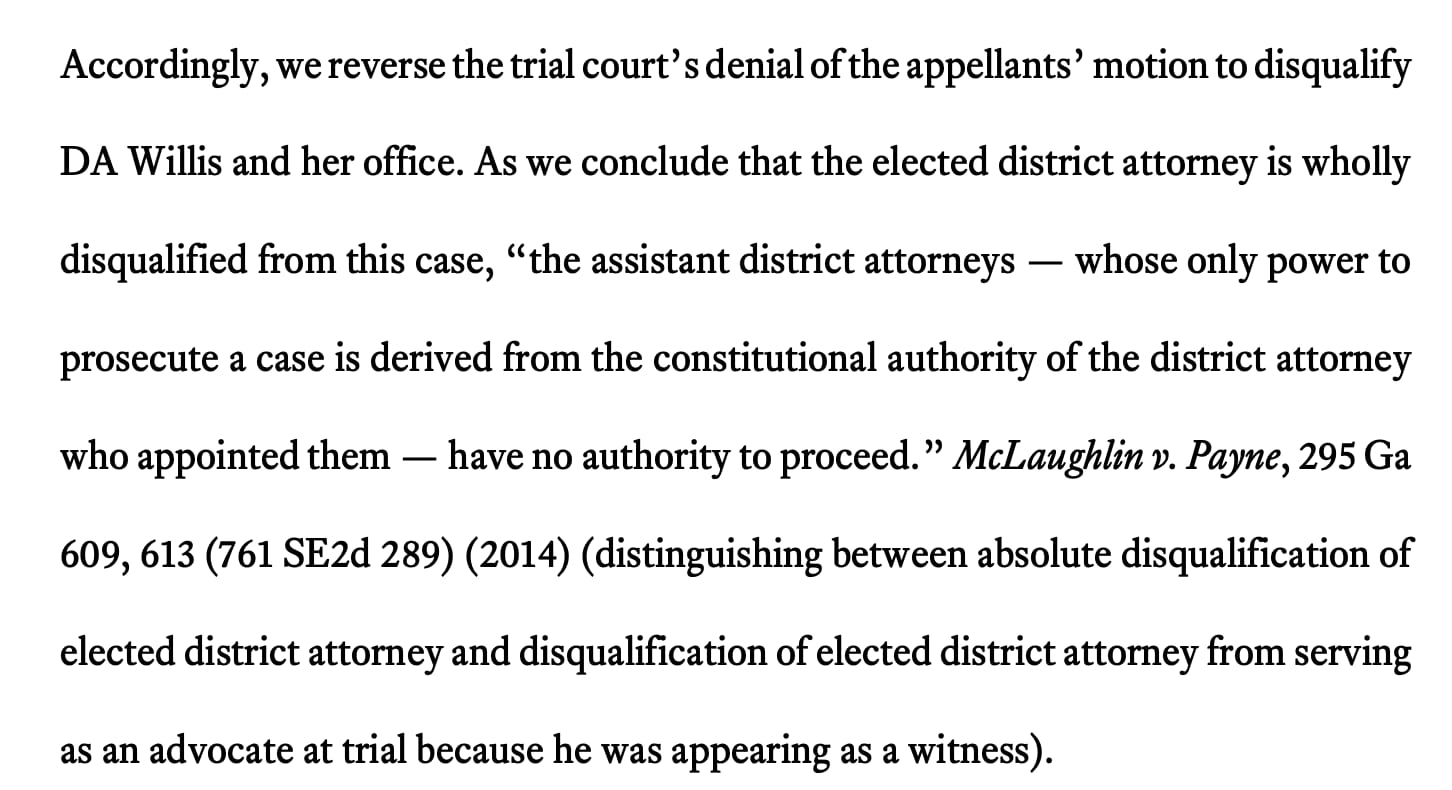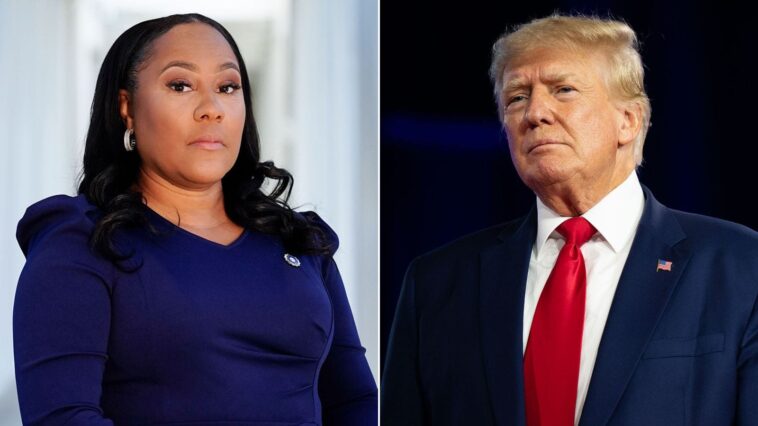The Georgia Court of Appeals issued a significant ruling on Thursday, disqualifying Fulton County District Attorney Fani Willis from overseeing the high-profile case against President-elect Donald Trump and his alleged co-conspirators. This case involves accusations of attempting to overturn the results of the 2020 presidential election. The ruling adds another layer of complexity to a legal matter that has already faced delays and intense scrutiny.
The appellate court’s decision stems from concerns about the integrity of the proceedings. Specifically, the court determined that the case exhibited a “significant appearance of impropriety” that could potentially undermine public confidence in the judicial process. This determination led the court to conclude that Willis’ office cannot continue prosecuting the case. Consequently, for the case to proceed, a new special prosecutor must be appointed.
Despite these concerns, the court stopped short of dismissing the entire case. The judges emphasized that while an appearance of impropriety typically does not warrant disqualification, the unique circumstances of this situation demanded such a remedy. The court stated,
“While we recognize that an appearance of impropriety generally is not enough to support disqualification, this is the rare case in which disqualification is mandated and no other remedy will suffice to restore public confidence in the integrity of these proceedings.”
However, the court also noted that “We cannot conclude that the record also supports the imposition of the extreme sanction of dismissal of the indictment.”The ruling raises questions about the future of the case, which has already been in limbo. With Willis disqualified, the process of appointing a new special prosecutor will likely introduce further delays. The decision also highlights the legal and ethical challenges surrounding the case, which has attracted national and international attention due to its implications for democracy and the rule of law.
One of the primary reasons for the disqualification was the alleged romantic relationship between Willis and Nathan Wade, the special prosecutor she had appointed to assist with the case. Defense attorneys for Trump and some co-defendants argued that this relationship created a conflict of interest, as they claimed Willis had financially benefited from her connection to Wade. According to these claims, Wade covered expenses for several vacations the pair took together. This relationship, they contended, compromised the impartiality of the prosecution and further eroded trust in the legal process.
In response to the disqualification, Willis and her legal team have announced their intention to challenge the ruling. They have petitioned the Georgia Supreme Court to review the appellate court’s decision, signaling their commitment to remaining involved in the case.
For Trump and his co-defendants, the ruling marks a significant development in their broader legal strategy to challenge the case. Their legal teams have consistently sought to question the credibility and objectivity of the prosecution, and the disqualification of Willis serves as a notable victory for their defense efforts. However, it does not absolve them of the charges or halt the proceedings entirely.
The case against Trump and his alleged co-conspirators is part of a sprawling racketeering conspiracy indictment that has already captured widespread public interest. The allegations involve coordinated efforts to overturn the 2020 election results, with implications that reach far beyond Georgia’s borders. As such, maintaining public trust in the judicial process is paramount. The appellate court’s decision to disqualify Willis underscores the importance of addressing even the perception of impropriety in cases of this magnitude.

Moving forward, the appointment of a new special prosecutor will be crucial in determining the trajectory of the case. This individual will need to navigate the legal complexities and public scrutiny while ensuring that the proceedings remain fair and transparent.

The Georgia Court of Appeals’ decision to disqualify Fani Willis from prosecuting the case against Donald Trump and his alleged co-conspirators marks a pivotal moment in an already contentious legal battle. While the ruling introduces new challenges, it also underscores the judiciary’s commitment to upholding ethical standards and preserving public confidence in the legal system. As the case progresses, all eyes will be on Georgia’s courts to see how they balance the demands of justice with the need for transparency and impartiality.



